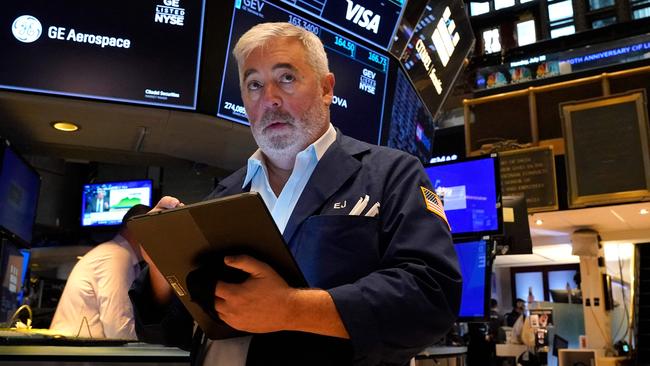ASX 200 falls after Wall Street's tech selloff; Fortescue's guidance miss; Macquarie's flat first quarter; ANZ sacks, suspends staff amid probe
Senate committee to grill PwC CEO Kevin Burrowes, former bosses again. Commodities sink despite China rate cut. Fortescue misses guidance. ANZ suspends, sacks staff as market manipulation probe continues. Macquarie's flat first quarter.

Welcome to the Trading Day blog for Thursday, July 25. The ASX 200 index closed down 1.3 per cent to 7861.20 points, with tech stocks the weakest. It followed Wall Street's tech-heavy Nasdaq and the S&P 500 indexes marking their worst sessions since 2022.
The Aussie dollar is trading near US65.42c at 5pm AEST.




To join the conversation, please log in. Don't have an account? Register
Join the conversation, you are commenting as Logout